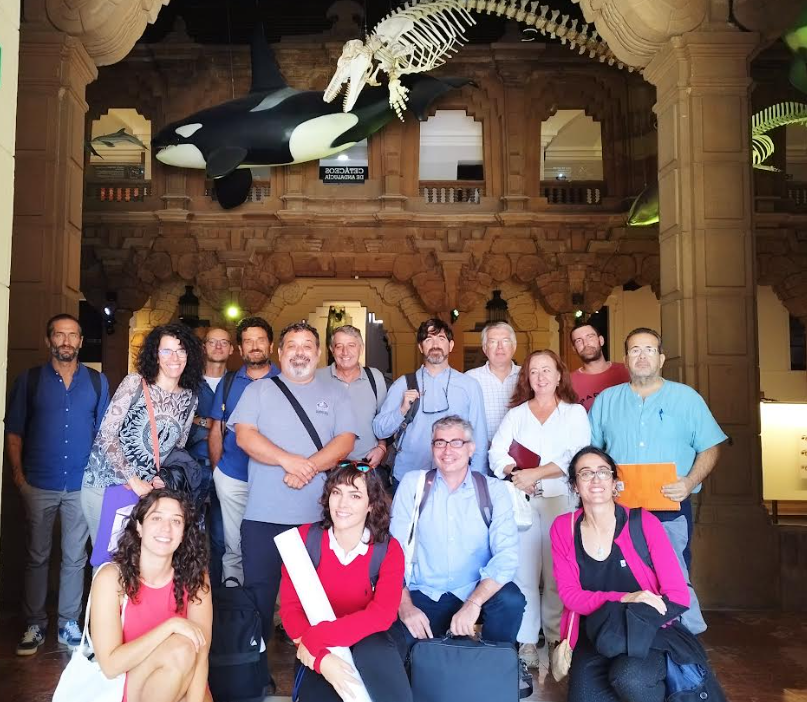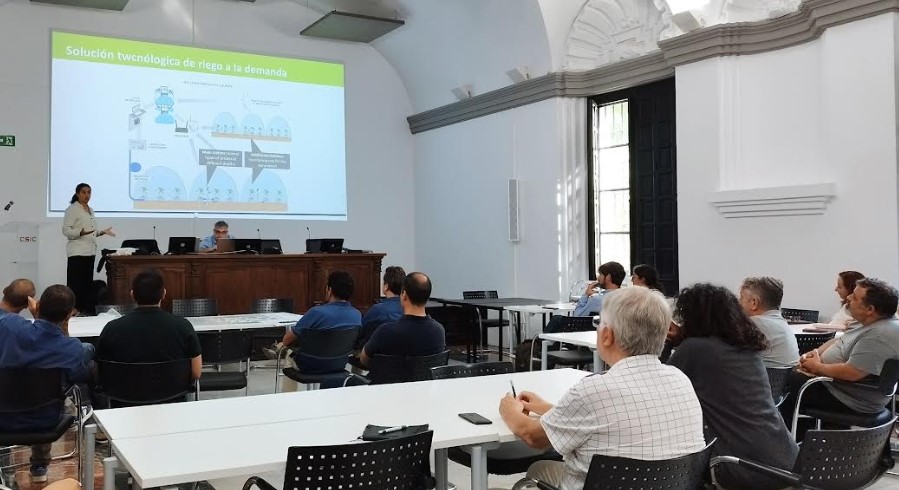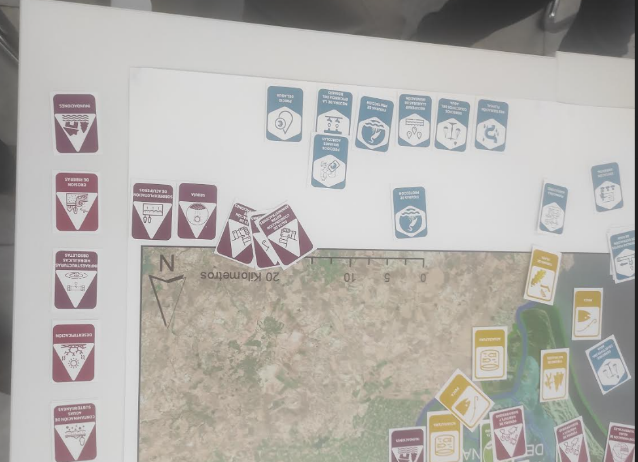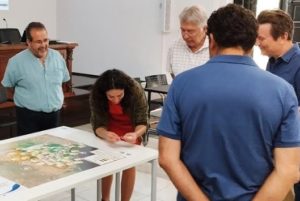11 October 2022
The first LENSES workshop for the Doñana pilot took place in the Science Museum of Seville on October 11, with attendants from agriculture, water and environment sectors, who were interested in learning and contributing to the operationalisation of a Nexus approach. The meeting was organized by ECOADAPTA.
This workshop brought together key stakeholders with a good balance from different Nexus sectors. Participants represented environmental organizations, eco-tourism companies, water authorities, regional government representatives with a broad expertise in agriculture and societal engagement, natural area managers, scientists from the Spanish Geological Survey and Doñana Biological Station, the main community of irrigating farmers, and agronomic consultants specialized in irrigation management, among others.
The first activity focused on participatory mapping and group discussion of the elements defining the systemic challenges in Doñana. Attendants identified the main impacts and systemic challenges in the region of Doñana, by linking the main resources provided by ecosystems (forests, farming areas, wetlands and marshes, coastal areas, and so on), the core socioeconomic activities within the landscape, and the pressures limiting resource access or availability.
As a result, key Nexus issues were discussed collectively e.g., lack of cooperation among institutions, reduction in water resources availability due to climate change, or competition between sectors for key resources. Raffaele and Ivan, our colleagues from IRSA traveled from Bari to assist us and were able to translate stakeholder’s discussion into a new Causal Loop Diagram that will update the current version as a basis for the System Dynamics Model. Our colleague Esteban, from Agrisat, was also actively participating.

As a next step, we started imagining the potential solutions that can help to tackle these main challenges using the set of cards specifically created for this workshop based on the information compiled through stakeholders’ interviews. The use of our methodology really facilitated a gentle and productive discussion, where the process of interacting and exchanging ideas in a safe environment was extremely meaningful, i.e., different actors could better understand the points of view and perceptions of actors from other sectors sharing the use of the same resources.
We concluded the activity with a presentation of LENSES progress and an online survey using Mentimeter tool, that will set the basis for the initial specification of the desired scenarios that we aim to build in our second workshop, in a few months.Celebrating this workshop has been a big step forward in the progress of our activities in the Doñana pilot. We finally were able to present a broad array of results, catching the attention of key stakeholders with LENSES methodology. Doñana is currently seriously threatened by many issues, e.g. drought emergency plan activated, a reduction of wintering birds from 500,000 to less than 100,000 between 2022 and 2021, due to the reduction in flooded area in the marshlands, rice cultivated area capped to a 25% of the average area in the last season. A resilience approach building on the WEF Nexus is perceived as a sound contribution, in particular when this approach builds upon a strong participatory approach.




